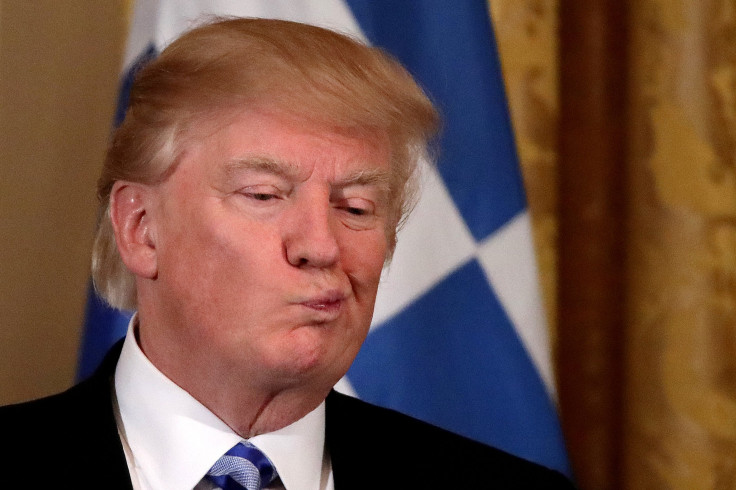Are Taxes Going Down In 2017? White House To Work With Democrats On First Tax Code Reform In 30 Years

Fresh off the party's failure to pass a bill repealing and replacing a 7-year-old health care law after years of preparations, the GOP planned to take a new approach to giving the nation its first major tax reform in more than three decades.
“I would say that we will probably start going very, very strongly for the big tax cuts and tax reform,” President Donald Trump told reporters at the White House after the health care bill’s fallout Friday. “That will be next.”
Read: What Is The Net Investment Income Tax? Trump Could Save Millions If It's Repealed
But while Treasury Secretary Steve Mnuchin once called the task, which he hoped to accomplish by August, “a lot simpler” than health care legislation, Republicans in Congress faced likely skirmishes not only with Democrats likely to balk at proposed income tax cuts for the wealthy, but the White House, fiscal conservatives within their ranks and business owners reliant on imports.
White House Chief of Staff Reince Priebus, for example, said on “Fox News Sunday” that the administration planned to bypass stubborn conservatives blamed for the health care debacle on future legislative efforts.
Suggesting that Democrats “are going to come on board” with “the president’s vision on lowering taxes,” Priebus added that, if certain measures “are incompatible with some members of the Republican House, then it’s going to be incompatible, and then we need to work with moderate Democrats to make sure that happens.”
As Stephen Moore, an economist at the Heritage Foundation, a conservative think tank, told the New York Times, this route may entail some compromise in order to end successfully.
“They have to have a victory here,” said Moore, who served as an adviser to Trump during the reality TV star’s campaign, of the Republicans. “But it is going to have to be a bit less ambitious rather than going for the big bang.”
Plans for steep tax cuts could also face resistance from budget conservatives who don’t want to drive up the government deficit by slashing its main source of revenue. While some Republicans in the past have promised a “revenue neutral” fiscal plan, meaning it would rake in the same amount of revenue as under the current structure, House Freedom Caucus Chairman Rep. Mark Meadows (R-North Carolina) said otherwise Sunday.
“Does it have to be what they would say 'revenue neutral,' or do you have to have an offset like with the border adjustment tax?” Meadows said in an ABC News interview with George Stephanopoulos. “I think there has been a lot of flexibility in terms of some of my contacts and conservatives in terms of not making it totally offset… But does it have to be fully offset? My personal response is no.”
Read: What's Next For Obamacare? Earlier Reports Hint At Republicans’ Plan B
The proposed border adjustment tax Meadows mentioned could also be a sticking point. A tax on imports sold domestically, it could harm corporations in the apparel, petroleum, electronics and textile industries, all of which are heavily reliant on imported goods, as Quartz pointed out in February.
Although Trump has pledged to lower the corporate tax rate to 15 percent from 35 percent—the third-highest in the world, when the 3.9 percent average state levy is brought into the picture—the business community may also be alarmed at the GOP’s plans to close corporate tax loopholes. As the Wall Street Journal found, using data from the Congressional Budget Office, the effective corporate tax rate, when taking loopholes into account, was 18.6 percent in 2012—20.5 percentage points below the statutory rate that year.
© Copyright IBTimes 2024. All rights reserved.












